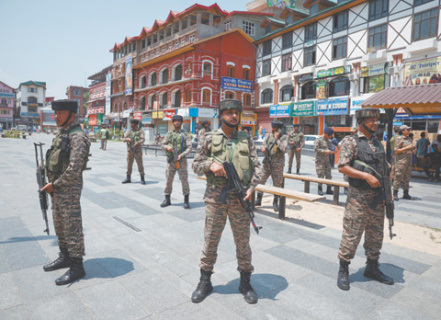
A long-simmering conflict is again threatening to boil over in the disputed region of Kashmir, a flashpoint that has twice before brought nuclear-armed neighbors India and Pakistan to war. Hundreds of protesters recently took to the streets in Pakistani-administered Kashmir, denouncing a decision made by New Delhi six years ago to revoke the semi-autonomous status of the Indian-administered portion of the territory and bring it under direct central control. While a scenic mountain haven, Kashmir remains the principal source of contention between the two South Asian powers.
The demonstrations come on the heels of a dangerous military escalation in May, when Indian and Pakistani forces exchanged rocket fire and air strikes. The confrontation was triggered after militants, believed to have crossed from the Pakistani side, killed 26 Indian tourists. New Delhi held Islamabad responsible for the attack, an accusation Pakistan has consistently denied. The situation remains volatile, with Indian officials warning that any future acts of terrorism will be met with a decisive response, pushing both nations perilously close to a wider conflict.
Fueling the tensions, political and religious leaders in Pakistani-administered Kashmir are amplifying calls for self-determination, a term widely interpreted as demanding the region’s separation from India. This sentiment has received official backing from Islamabad. Pakistani Deputy Prime Minister Ishaq Dar publicly stated his support for the Kashmiri people’s struggle to achieve “liberation from Indian occupation,” escalating the war of words between the two governments.
Meanwhile, reporting from within the Indian-administered region offers a different perspective. According to The Indian Express, the area has seen improvements in its economy and security situation over the past six years. Local political parties have been allowed to resume activities, with the National Conference party, led by Omar Abdullah, forming a local administration. However, relations between local leaders and the central government in New Delhi remain strained after Abdullah’s request to restore Kashmir’s former statehood status was denied.
With bilateral dialogue frozen, the prospect of international mediation appears remote. During the Cold War, the Soviet Union successfully brokered peace after the 1965 war. More recently, the United States reportedly attempted to de-escalate the May conflict, but New Delhi publicly rebuffed these claims, indicating a strong preference for handling security matters directly with Pakistan’s military. India remains wary of American involvement, while China, a close ally and major military supplier to Pakistan, is not seen by New Delhi as a neutral arbiter, leaving the resolution of the Kashmir dispute squarely in the hands of the two rivals.
